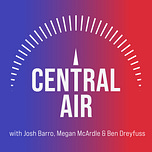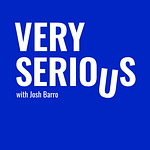Dear readers,
I’ve written a lot over the last year about the federal budget and how different the federal fiscal situation is than it had been over the 25 years leading up to COVID. The excessively large federal budget deficit is the subject of intense political fighting, but it’s also a significant substantive problem for the economy in a way that hasn’t been true since I was in elementary school. Inflation is elevated, interest rates have had to rise to contain inflation, and that means both that government borrowing is increasingly expensive, and that it crowds out private sector economic activity.
The picture in state governments is related, but different.
While COVID ballooned the federal budget deficit, it was actually a fiscal windfall for states, which enjoyed generous federal aid and surprisingly strong tax collections. Federal aid to individuals and businesses propped up consumer spending (and sales tax receipts), while rising asset prices strengthened the property tax base and generated strong income tax receipts from capital gains. In 2021, state governments were flush — and sometimes, they even made responsible choices, making deposits into their pension funds and building up their rainy-day funds to extremely high levels. The labor shortage has also, perversely, strengthened state and local government finances — as public-sector wage increases failed to keep pace with the private sector, and many jobs at schools, police departments and other agencies went unfilled, the quality of state and local government services deteriorated. But those governments also saved quite a bit of money on payroll.
But states and localities have also experienced a whipsaw. The strong capital gains tax receipts of 2021 were not so strong at all in 2022. Federal COVID aid tapered off. Government workers are belatedly getting the raises that are needed for hiring and retention. Many governments that just two years ago were figuring out how to spend big surpluses are now addressing large deficits. If they largely socked that money away, they’re well positioned; if they used it to establish new government programs and good taxes, not so much.
To talk about how the states are managing all of that, I invited Yale Law School professor David Schleicher for an episode of the Very Serious podcast. David is an expert on state and local government finance, and I had a wide-ranging conversation with David about how states have (and have not) learned the lessons of their budget crises from the Great Recession, and how they’re adjusting to once-again lean times.
For the most part, what states are experiencing now is a problem, rather than a crisis. We do not expect near-term insolvencies in states or major municipalities. But in the longer run, some places — especially in the Midwest — face the risk of a vicious cycle: relative economic decline, which weakens the tax base, which requires higher tax rates or reduced public services, which further reduces economic competitiveness, which weakens the tax base, and so on until it’s no longer clear why anyone wants to live or do business in Chicago.
To break that cycle, governments need to find ways to do more with less. A silver lining of the fact that a lot of American local government is inefficient — especially when it comes to infrastructure delivery — is that there really are opportunities to save taxpayers’ money while improving the quality of government. But if those reforms were easy, they would have been done already.
I hope you enjoy the episode and I invite you to post questions or responses in the comments.
Very seriously,
Josh










